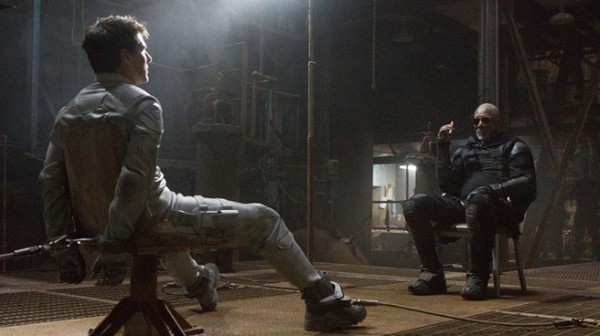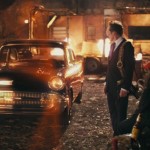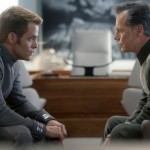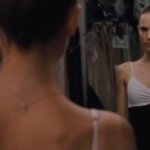
A Bitter Pill to Swallow: Beech played by Morgan Freeman shines a light in the dark for Jack played by Tom Cruise and this time, there’s no red or blue pill to choose from.
Sometime in the near future, mankind endured a catastrophic alien attack that wiped out most of human life and civilization. Stationed above the Earth in an outpost resembling a condo designed by Apple overlooking what was once NYC, Jack (Tom Cruise) and his partner Victoria (Andrea Riseborough) are a watch dog/maintenance team entrusted with surveying the last collection of vital supplies before accompanying the mission to travel to the next star. When the departure date became imminent, Jack’s intuition caused him to have second thoughts about the course laid out for him. Like an itch he couldn’t scratch, Jack questioned orders and started to investigate on his own without authorization. His behavior pattern might suggest a psychotic break or the possibility that there was something wrong?
Director Joseph Kosinski brought together familiar components from 1970s Science Fiction films such as the Omega Man and Silent Running. When Cruise trekked out into the wasteland, there was something contemplative about man’s mortality, his legacy, and how at peace the Earth looked. Similar to his previous film Tron Legacy, he brought a polished, sophisticated use of computerized special effects that never failed to inspire a sense of beauty in the midst of urban ruin. Oblivion was a good-looking movie that one might not even need dialogue to enjoy the art captured its camerawork.
However the story suffered from too many cliché plot twists that never raised the bar from the material it was inspired by. Even though Tom Cruise was electric and his presence was commanding, familiar roles played by Morgan Freeman and Olga Kurylenko flattened out the performances. In the last 10-15 minutes Oblivion delivered an ending that didn’t offer many surprises. Thus the film became generic.
Oblivion offers the familiar distinguished taste of a house brew. It won’t make you regret you had it but it won’t compel you to drink another.
Cheers,
Ron




















